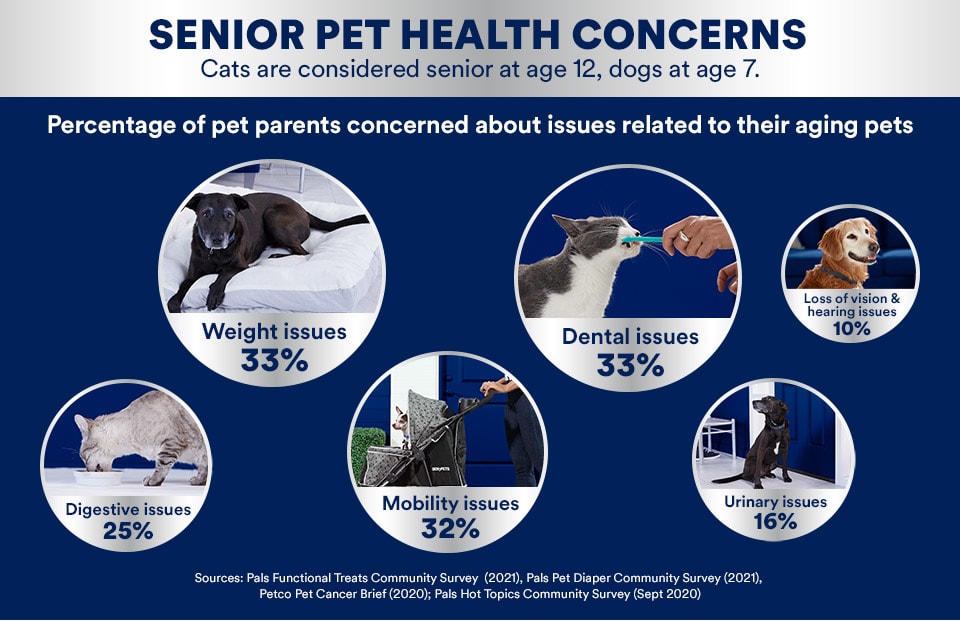3384 Insights
Your go-to source for trending news and information.
Keeping the Golden Years Gleaming: Senior Pet Care Secrets
Unlock the secrets to keeping your senior pet thriving! Discover essential tips for health, happiness, and a gleaming golden life.
Top 5 Essential Tips for Caring for Senior Pets
Caring for senior pets requires a compassionate approach and special attention to their unique needs. As pets age, they may experience health issues such as arthritis, dental problems, and vision impairment. Regular veterinary check-ups are essential to catch any potential health concerns early and to monitor changes in their physical condition. Additionally, modifying your home environment to make it easier for senior pets to navigate can significantly enhance their quality of life. For example, provide ramps for easy access to couches or beds, and ensure their essentials like food and water are within reach.
Diet is another critical aspect of caring for senior pets. Older pets often need nutrient-rich diets that cater to their specific health needs. Consult your veterinarian to determine the best food options available. Moreover, keep an eye on their weight, as obesity can exacerbate existing health issues. Finally, consider incorporating gentle exercise into their routine, as it can help maintain joint mobility and prevent obesity, ultimately improving their overall well-being. Remember, the golden years of your pet's life should be filled with comfort and happiness!

Understanding Common Health Issues in Aging Pets: What Every Owner Should Know
As pets age, they may encounter a variety of health issues that require careful attention and management. Common health concerns in elderly pets include arthritis, which can cause pain and reduced mobility, and dentistry problems, where periodontal disease can lead to tooth loss and infections. Additionally, conditions like obesity can exacerbate these issues, making it crucial for pet owners to monitor their pet's weight closely. Regular veterinary check-ups are vital, as they can help detect early signs of health problems, enabling more effective treatment and management strategies.
Another significant health issue for aging pets is cognitive dysfunction syndrome (CDS). This condition can manifest in behavioral changes such as disorientation, disrupted sleep patterns, and altered interactions with family members. Also, diseases such as kidney disease and diabetes are prevalent in senior pets, necessitating special diets and potentially frequent veterinary visits. Understanding these common health issues is essential for every pet owner, ensuring that your furry companion receives the care they need during their golden years.
How to Create a Comfortable Living Environment for Your Senior Pet
Creating a comfortable living environment for your senior pet is essential for their health and happiness. As pets age, they may experience physical limitations and health issues, making adjustments in their surroundings crucial. Start by ensuring that their sleeping area is soft and easily accessible. Consider using a supportive orthopedic bed that alleviates pressure on their joints. Additionally, keep their favorite resting spots away from drafts and direct sunlight to maintain a cozy atmosphere.
Another important aspect of making your home senior pet-friendly is to minimize obstacles they might struggle with. Clear pathways of clutter and arrange furniture to create safe routes. If your pet has difficulty climbing stairs, it might be beneficial to invest in a pet ramp or keep them on a single level. Furthermore, ensure that their food and water bowls are within easy reach, and opt for non-slip mats to prevent any slipping accidents. By implementing these changes, you'll help your senior pet feel more at ease in their home.